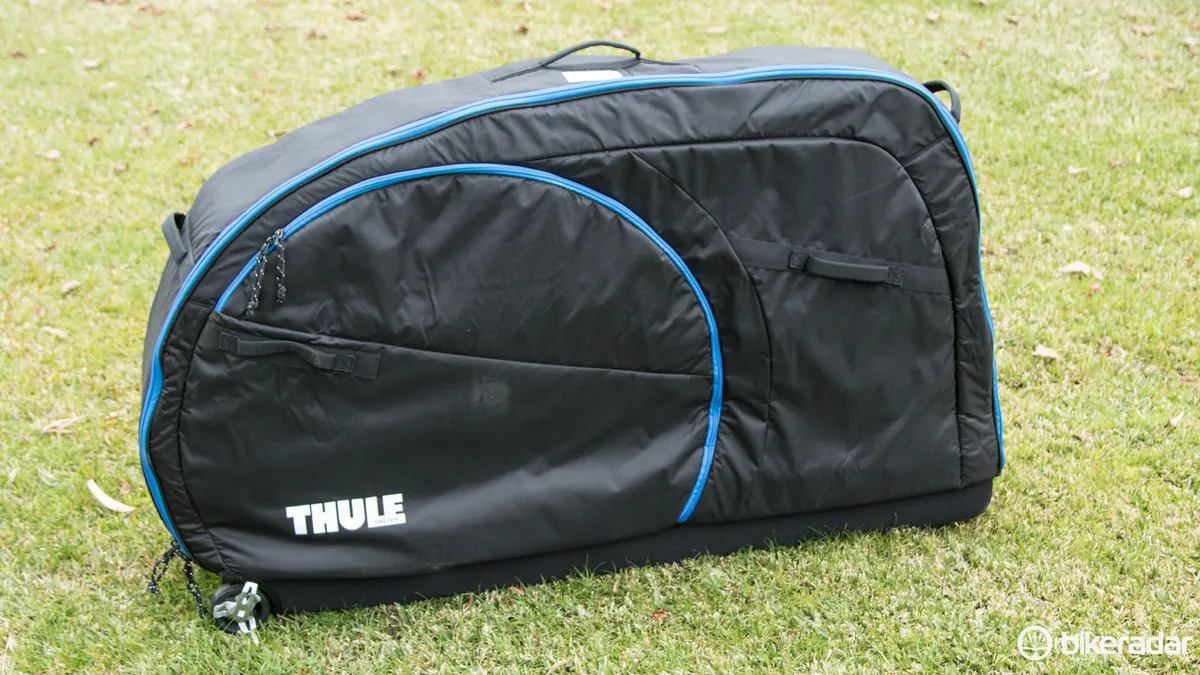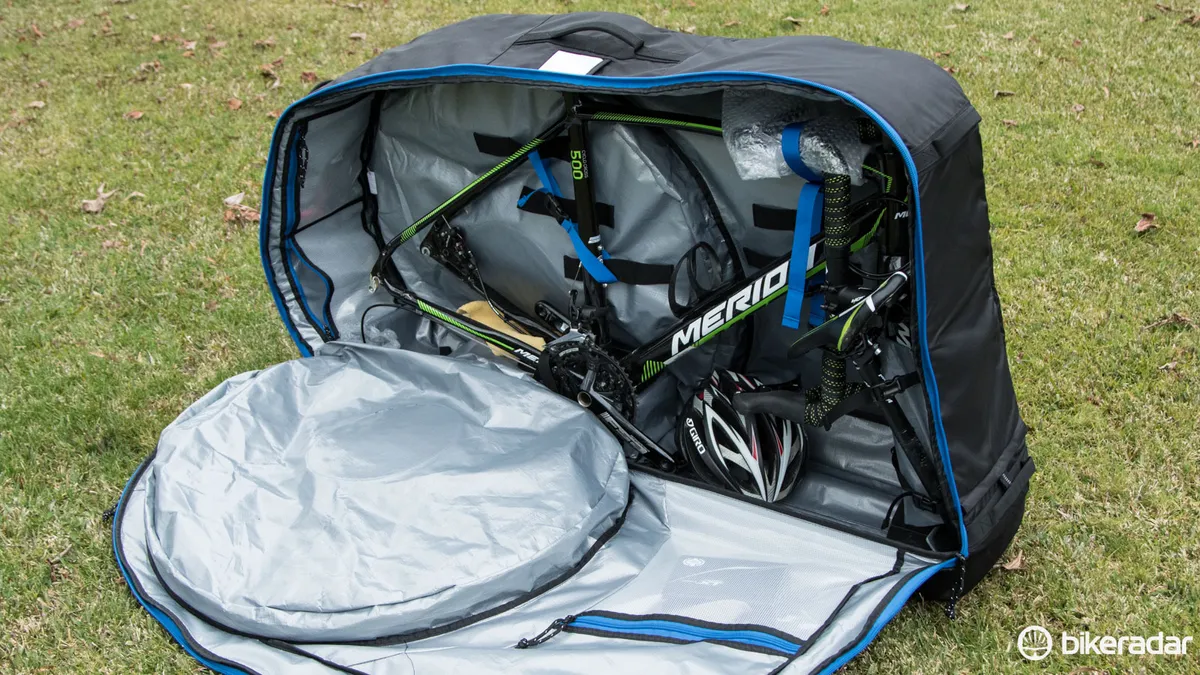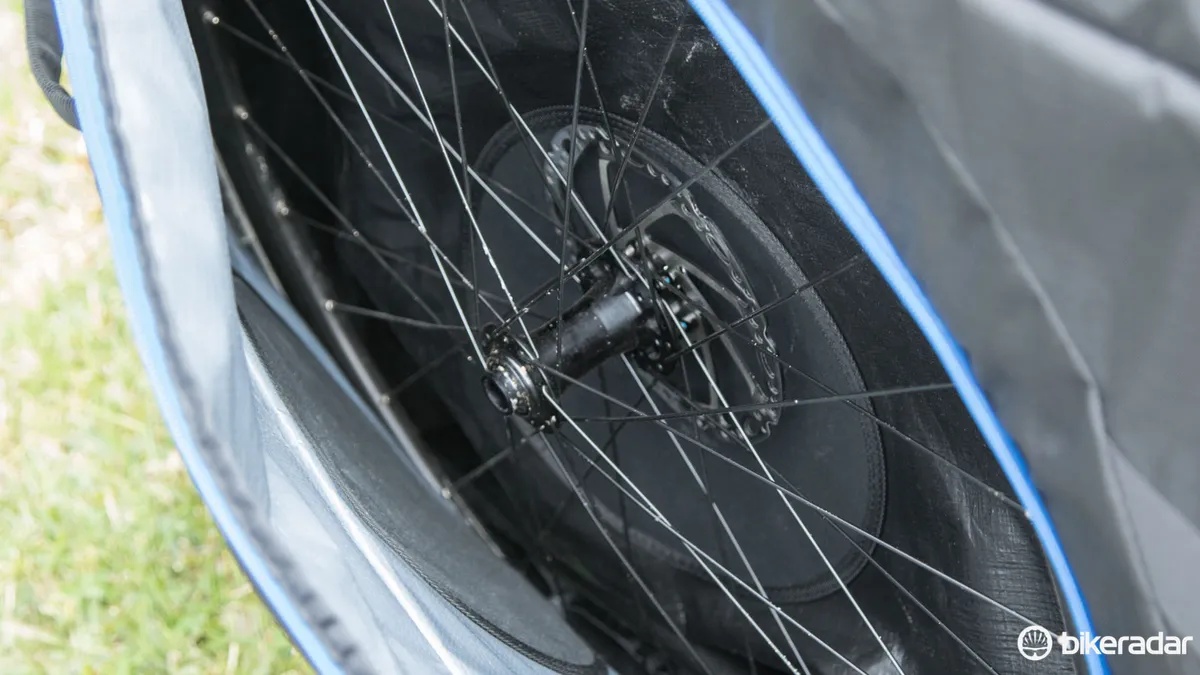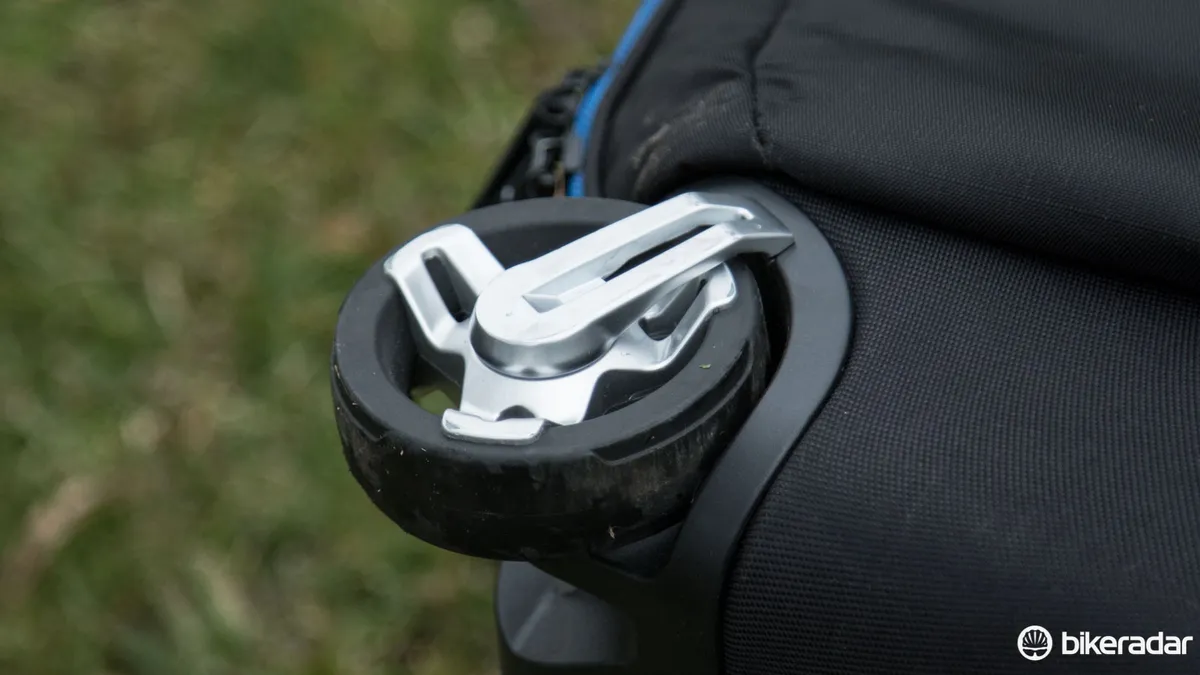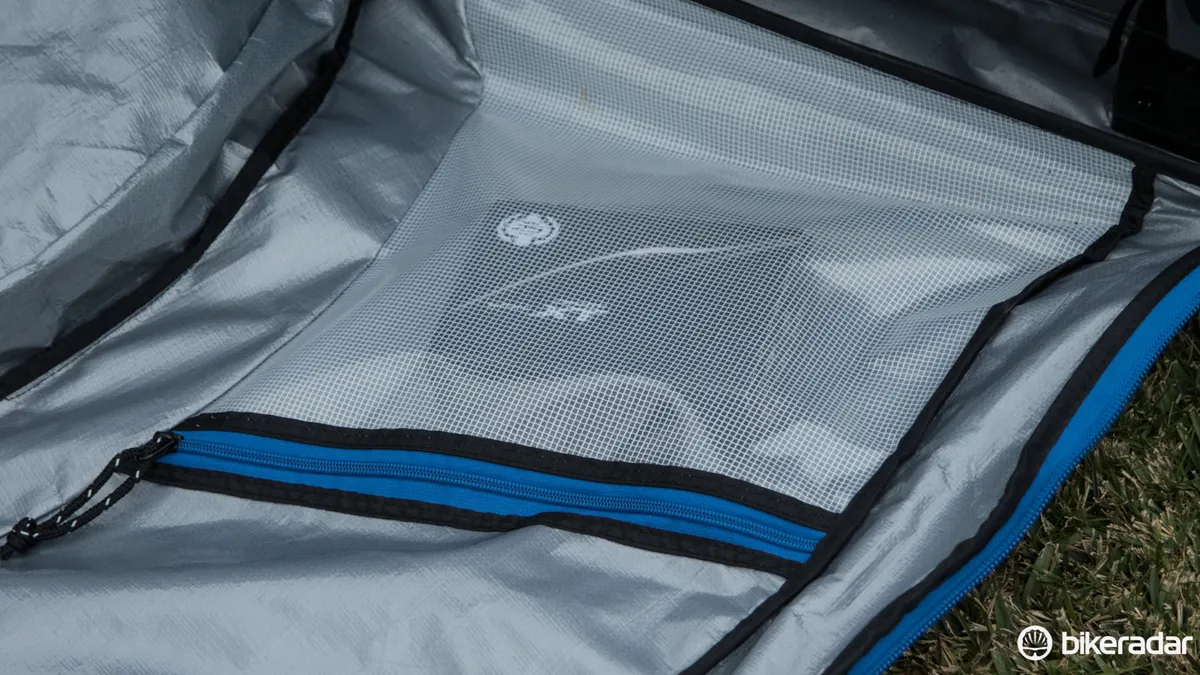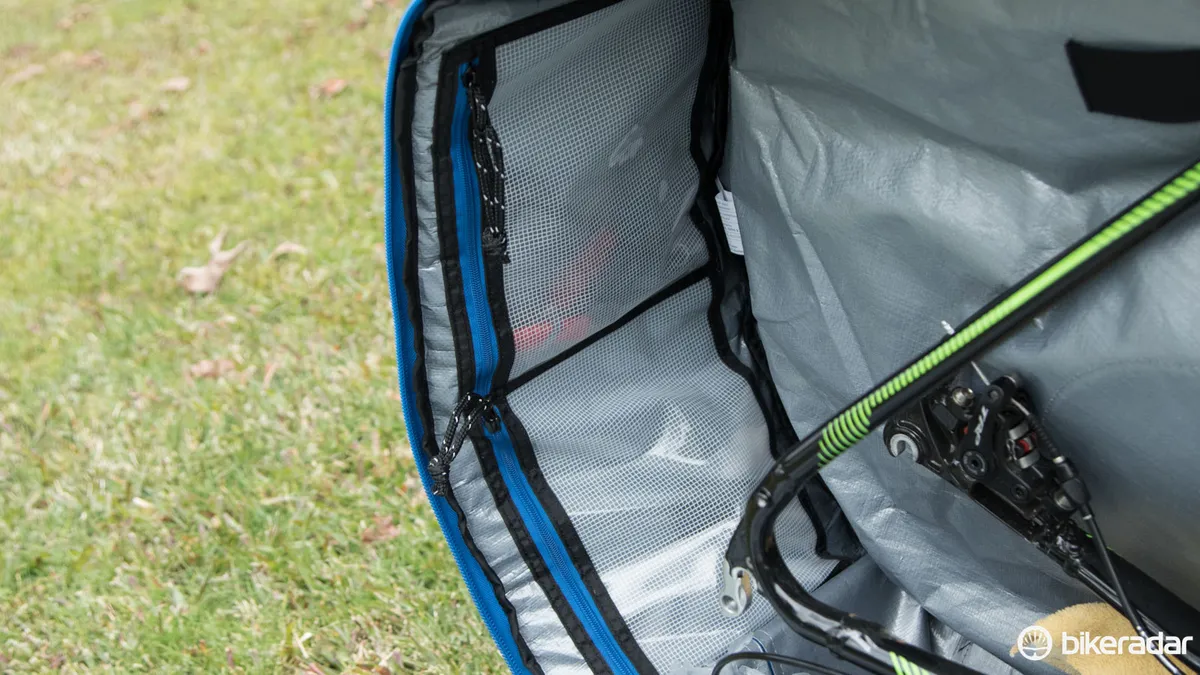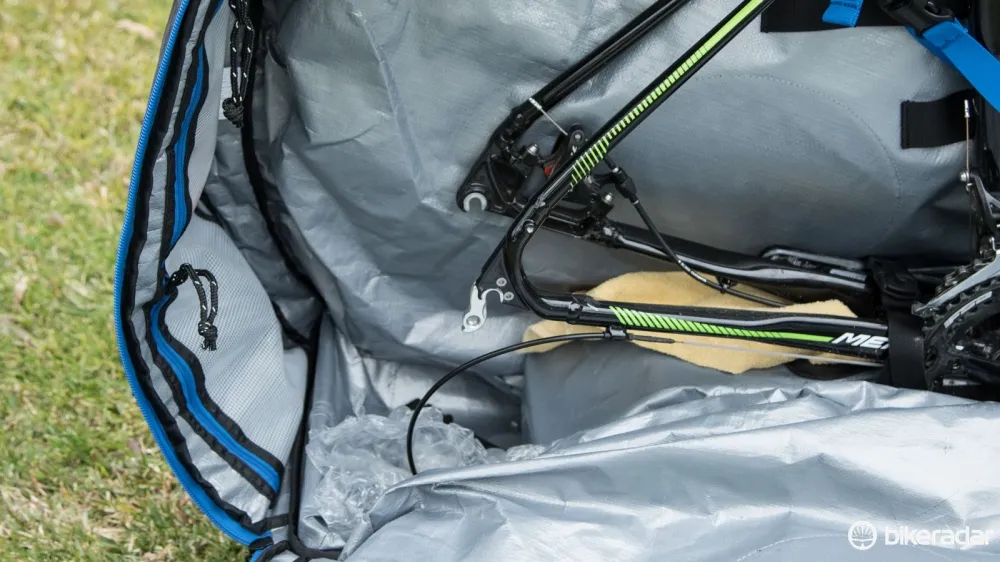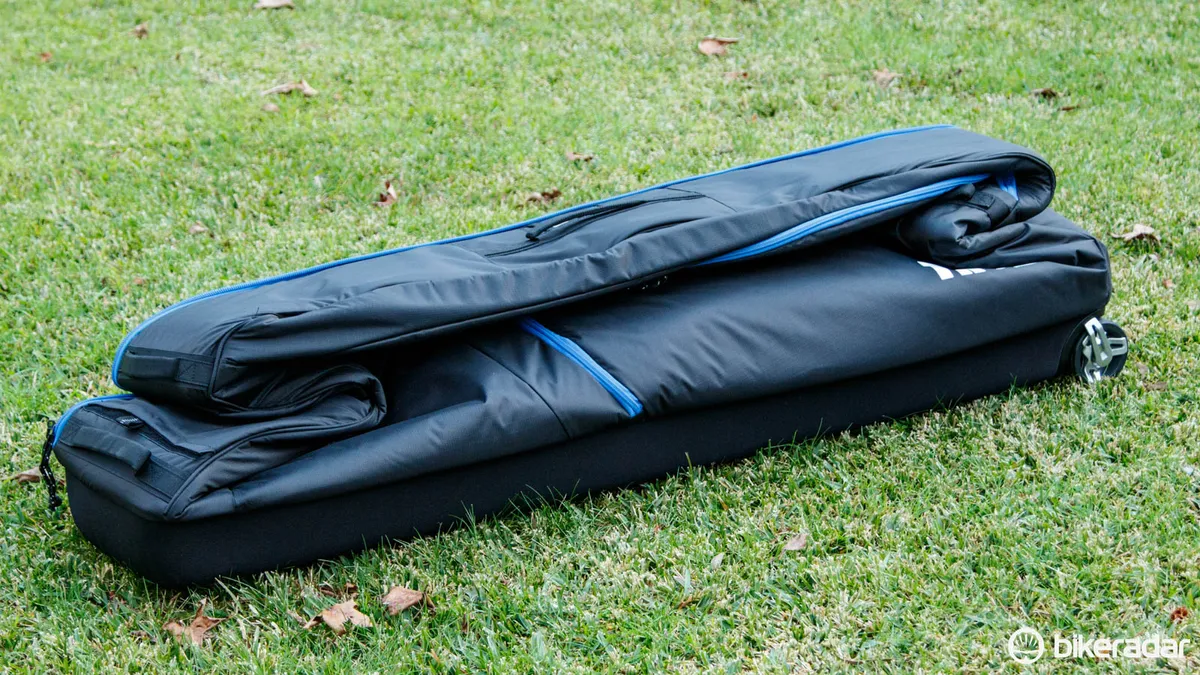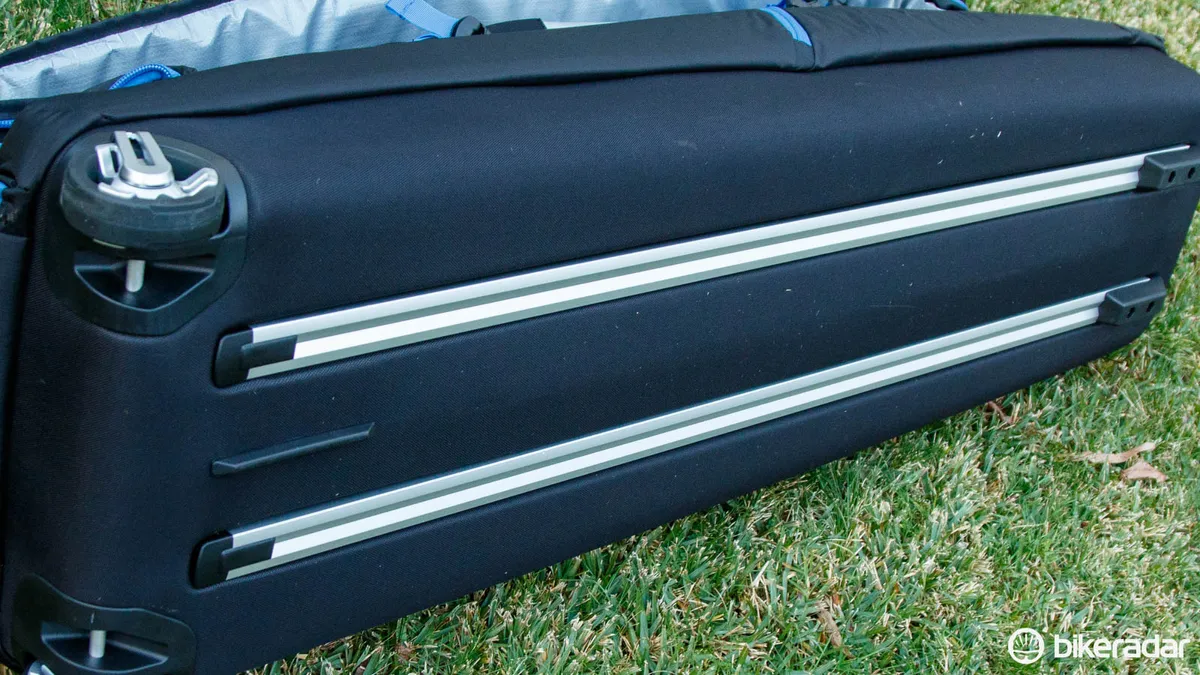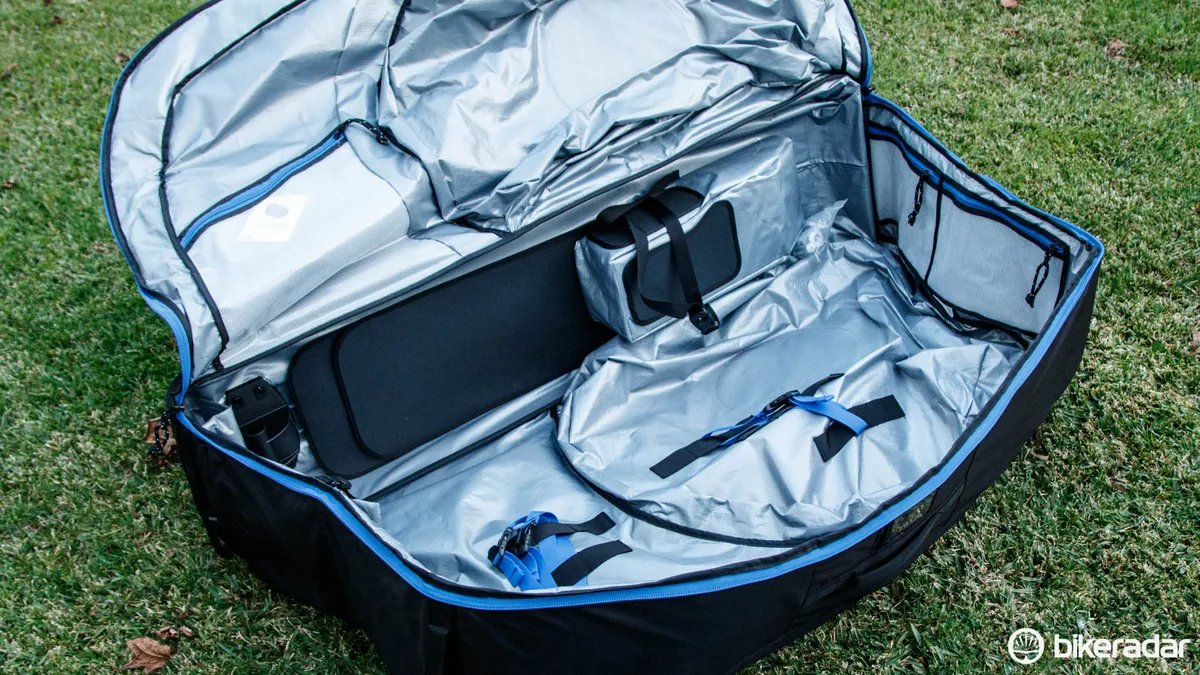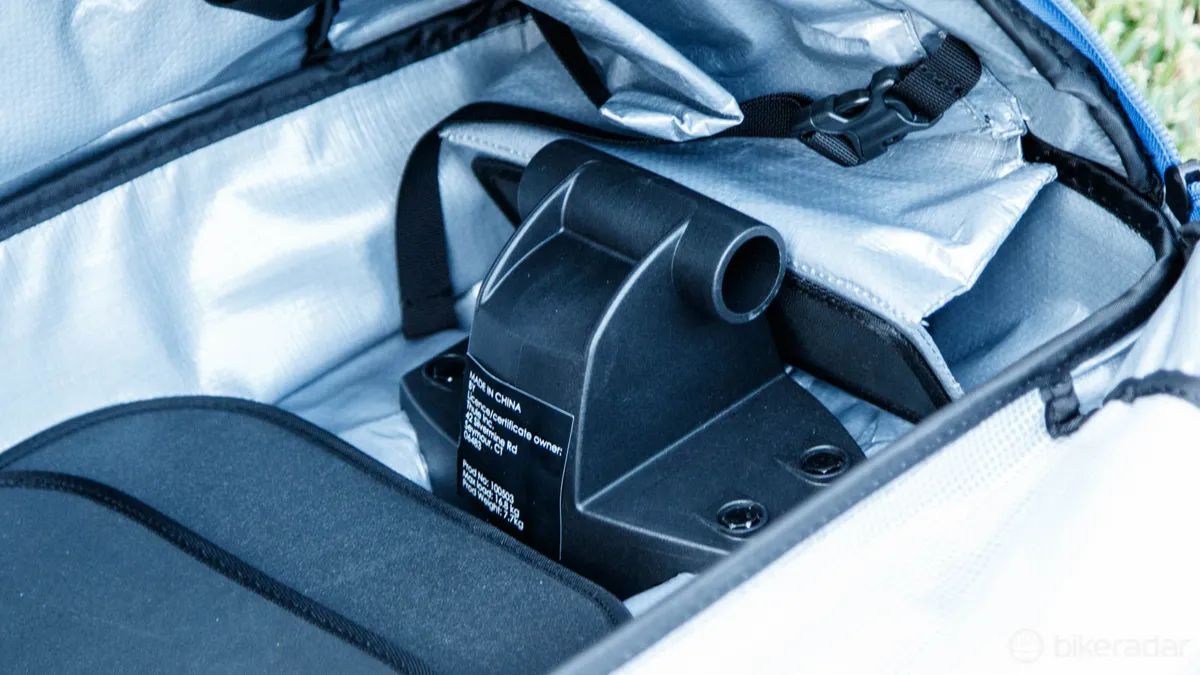Given that Thule is the market leader in bicycle transport racks, and showing strong growth in the travel luggage segment, offering bike travel bags was a natural step for the Swedish company. Here we review Thule’s brand-new and entry-level RoundTrip Traveler.
Thule’s more expensive RoundTrip Pro and Transition cases offer some unique features, such as a removable bike repair stand. But this new lighter, ‘budget’ model is extremely similar in design (and price) to the Evoc Bike Travel Bag – a bag we recently established was still best we’ve ever used.
- Highs: Proven design, easy to use, easily transported, compact storage, lightweight, trusted brand
- Lows: Uses bike wheels for reinforcing rigidity, no additional frame pads included, fork mount awkward with some popular thru-axle designs, still not all that cheap
- Buy if: You’re seeking a mid-priced bike travel case that’s on the lighter side
Built as a softshell case over a rigid and reinforced base, the Traveler arrives in its compact flat packed state. In order to give the case its shape, two long pieces of flat plastic are inserted vertically into the front and rear sections and secured within Velcro flaps.
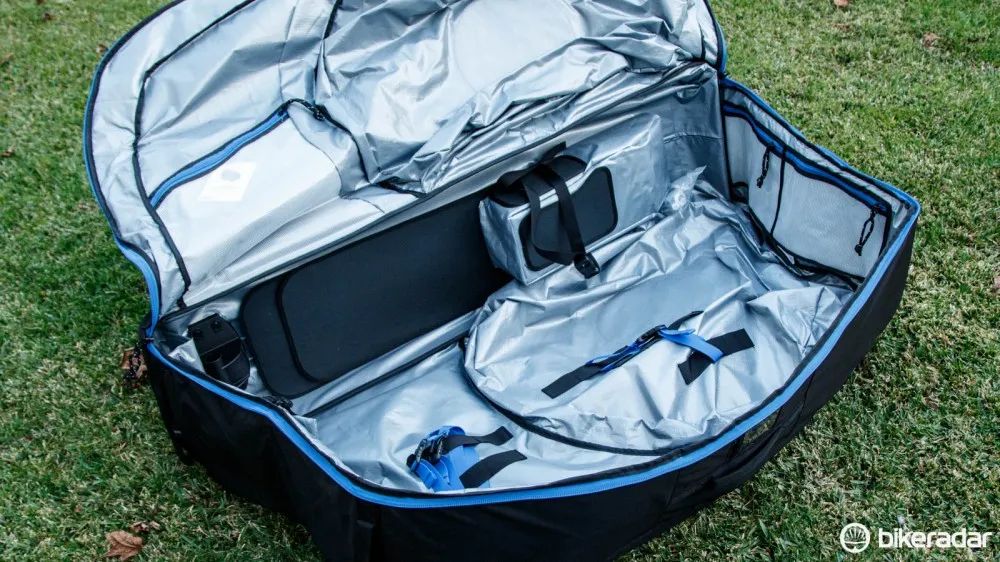
A look inside the empty case. Note the two piece of black plastic that need to inserted into the case's sides
From here, the case is ready to accept a bike – and in an extremely similar method to the Evoc Bike Travel Bag. You remove both wheels, pedals, stem (with handlebar) and either lower the saddle to 70cm or remove the post.
Where the original Evoc bag secures the front fork with buckles over a padded wrap, the Traveler receives a notable improvement of a permanent fork block. Thule includes common quick release, 15mm and 20mm axle conversion caps – with each using your bike’s relevant skewer or thru-axle for retention.
And in case your axle system isn’t compatible (such as a Cannondale Lefty), or if you just wish to further protect the fork blades/lowers like we did, Thule also give a similar buckle/padded system to the Evoc, which can be used in conjunction with the fork block.
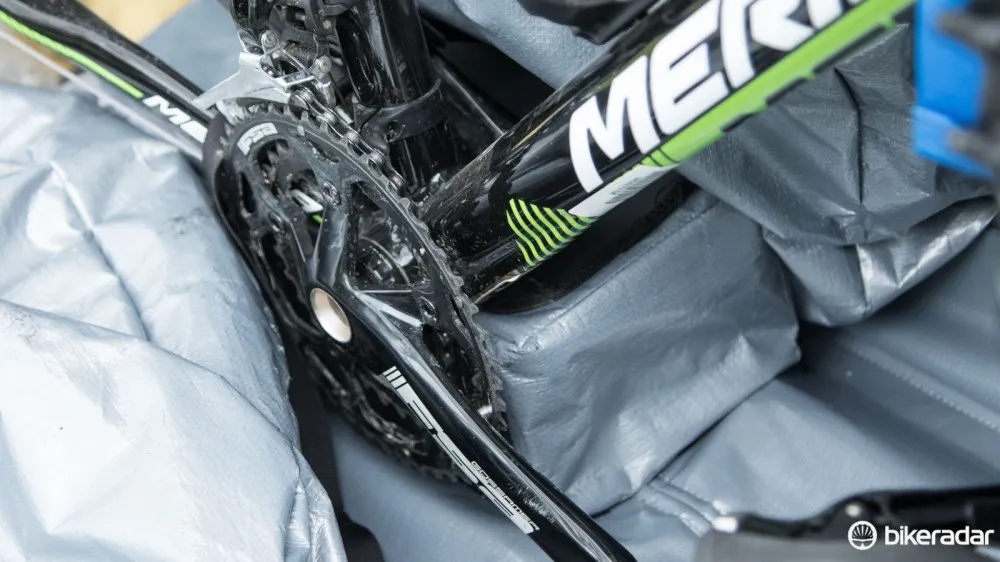
The bike's bottom bracket is strapped to a large foam block. A plastic side is given for the chainrings
With the fork mounted, the bottom bracket is rested and then strapped onto a large, reinforced and horizontally adjustable foam block. From here the handlebars are secured inline with the frame via the easily adaptable buckled straps.

There's a total of three internal zippered pockets
Once the bike is in place, the small items such as your pedals and tools can be placed in one of the three translucent zippered pockets for safe storage. You then zip up the case and the wheels are placed on alternating sides in their respective padded and zippered pockets.
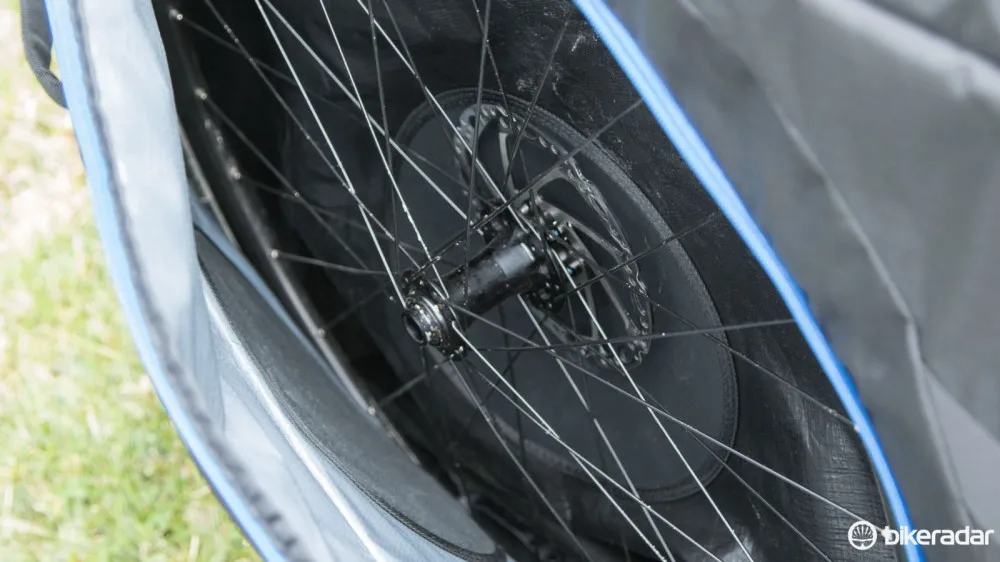
Padded wheel pockets sit either side of the case on the outside
Designed to fit a 29er wheel (anything over a 2.2in width will need to be deflated slightly), the wheel compartment features a reinforced plastic hub and disc rotor protectors.
We’ve successfully fitted 29er hardtails, a ‘cross bike, a road racer and a 650b trail bike within the RoundTrip Traveler. As long as your bike’s wheelbase is no longer than 126cm (50in), you should be fine (though Thule claims a maximum length of 116cm).
Our few flights with the Traveler have proven trouble free and the case has remained looking like new. This is as you'd expect, given that the outside material is ripstop nylon, while the inside is a tough and easy to clean tarpaulin material. Like most Thule products, it comes with a five-year warranty, which is quite rare for its category.
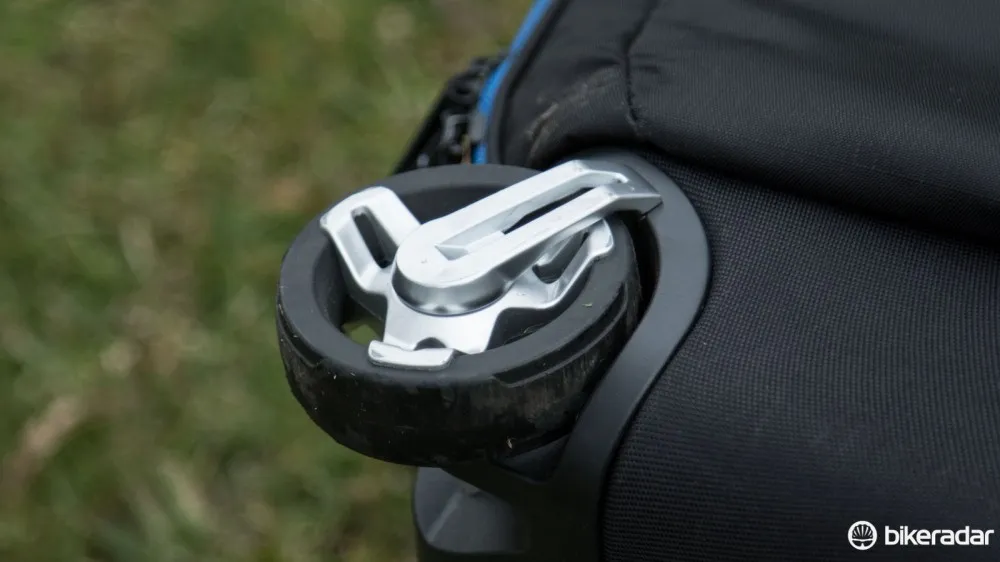
Reinforced from the outside, the wheels are ready for abuse
Sitting at the end of the reinforced base are two generously sized alloy wheels for easier transport. Wheeling the case around is simple with the lowest handle perfectly placed to tip the case’s weight onto the rear wheels and keep your towing hand at a comfortable height. The wheels are placed wide enough apart to prevent the case from tipping. And when it comes time to lift the case, multiple handles at both ends and on the sides are given.
Two metal slide rails running the full length of the base make for a nice additional feature; not only do they add strength, but they’ll stop the case from getting damaged if you decide to drag it up a gutter or similar.
Helping make the packing and carrying easier is the very respectable 7.75kg empty weight. This is nearly a whole kilogram lighter than the standard Evoc and can be the difference of a pair of mountain bike shoes and a helmet that would otherwise throw you over the maximum baggage allowance.
While the design is extremely well thought out though, it’s not without its issues.
Our biggest gripe is just how soft the upper portion of this bag is. Whereas the similar Evoc bag uses plastic rods for internal ribbing reinforcement, the Thule uses a lighter method of relying on the wheel for supporting structure to protect the frame from weight placed on top.

Out of precaution, we recommend unbolting the rear derailleur and installing a dropout protector (not included)
That’s fine, insofar as such top loads aren’t likely to be a problem, but a heavy side load could spell disaster for the wheels and/or frame within. That’s the general trade-off of a soft bag, and the Thule is generously padded and offers sheets of hardened plastic through the width of the case to help prevent such issues. Still, we'd suggest unbolting the rear derailleur from its hanger as a precaution.
The Evoc also includes pads specifically for protecting the frame from the handlebar, while the Thule does not. This means you’ll need to source your own additional frame pads and a rear dropout protector incase of crushing damage (tip: any bike shop can provide these).
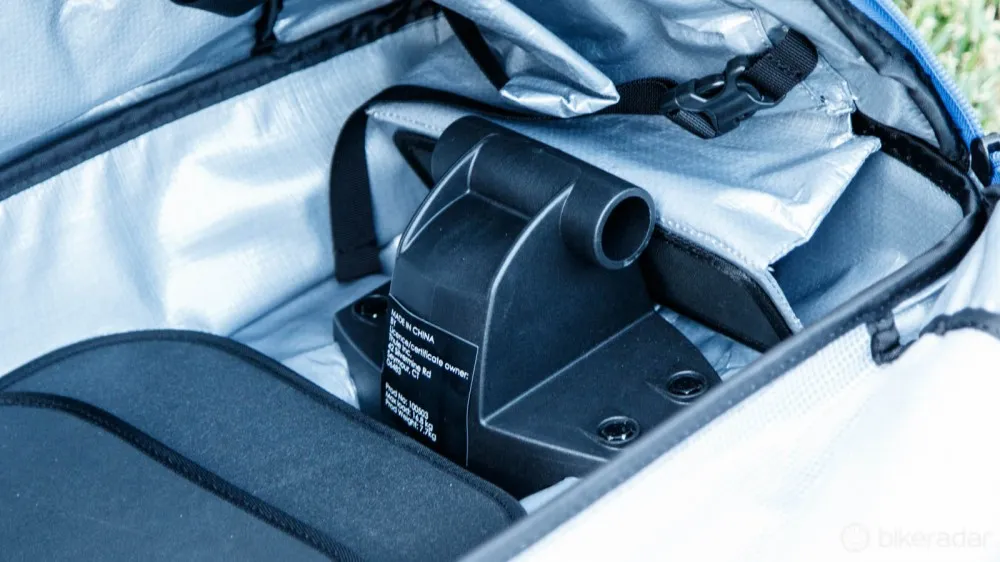
Axle adapters for the fork block are given to fit forks with quick release, 100 x 15 and 110 x 20mm thru-axles. However, beware of thru-axles that enter from the left (such as FOX)
We’re big fans of bike cases that feature axle mounts like this one, but the Thule fork block can be a real nuisance when using thru-axle forks where the axle enters from the left. As the case opens from the bike’s driveside, we found ourselves fighting the fixed side of the case to fit the skewer in, and then align the fork dropouts correctly.
Despite these three negatives, we still have plenty of praise for Thule’s RoundTrip Traveler and it’s likely many will be looking to compare this to the Evoc. Frankly, they're extremely similar and it’s tough to go wrong with either. The Thule Traveler offers a lower weight and a more solid fork connection, but it’s at the expense of less case rigidity and a slightly smaller internal space.
